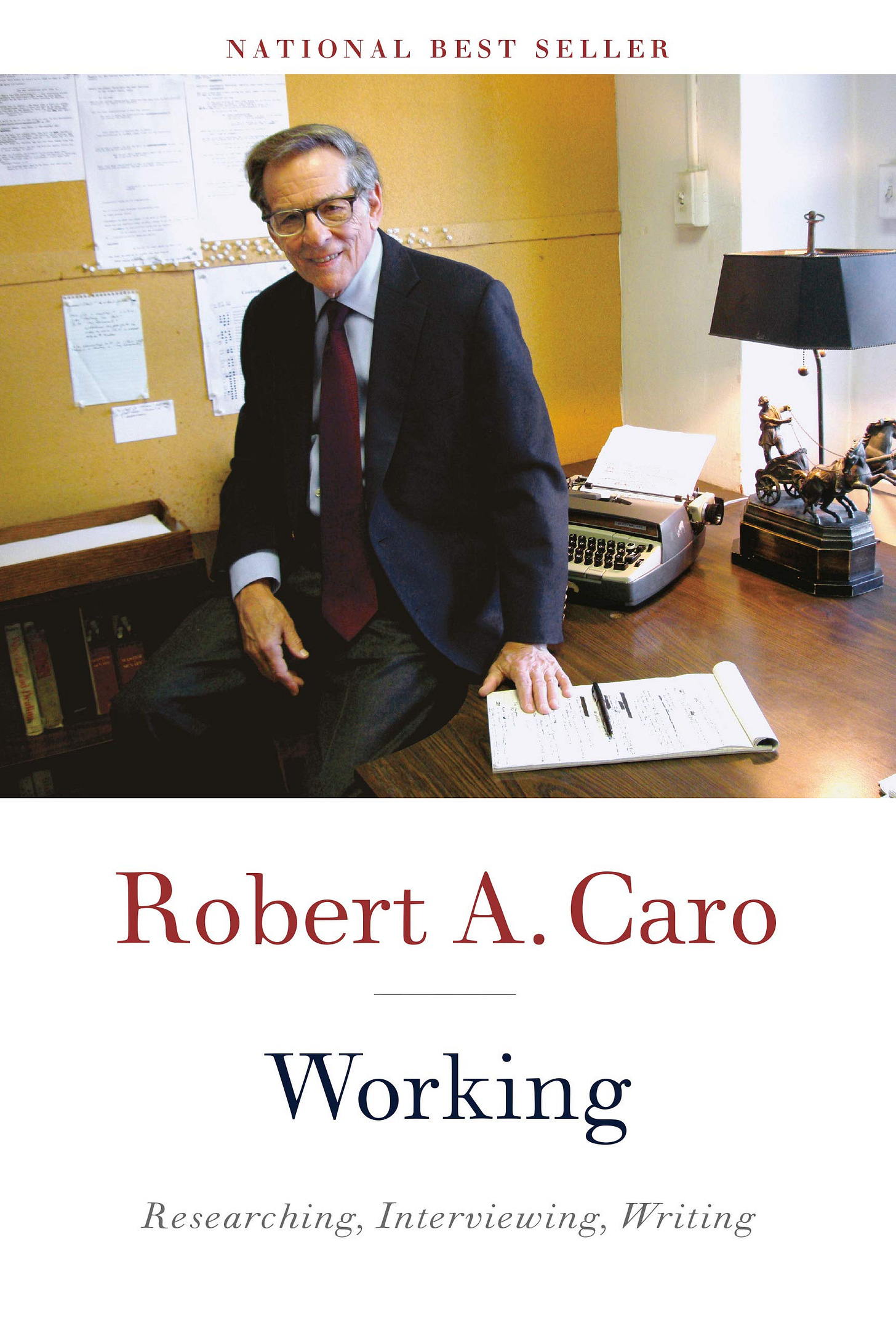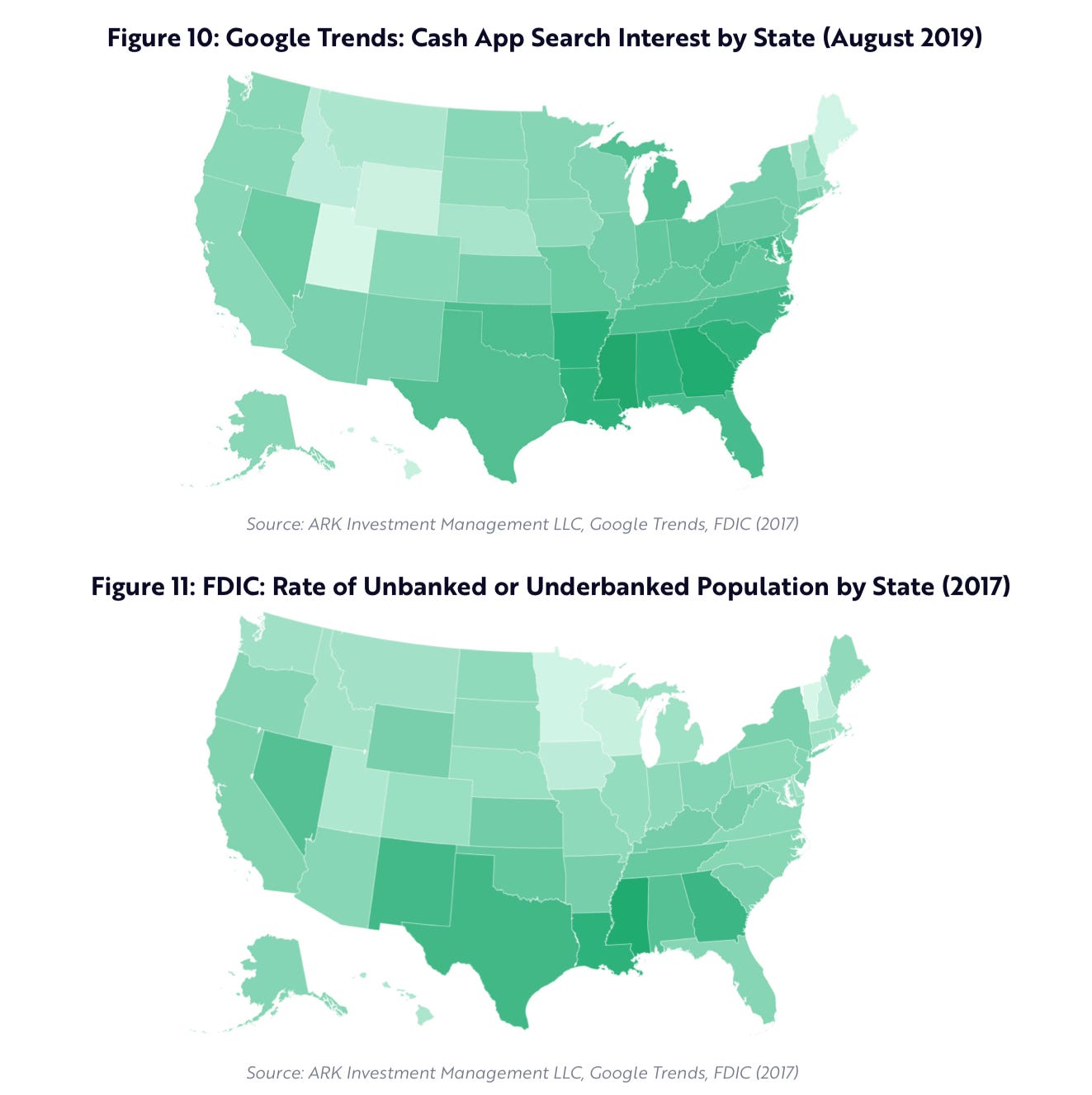Sunday Snapshots (31st May, 2020)
Connection, Working, Cash app, TV giants, and Space Shuttle landings
Hey everyone,
Greetings from Evanston.
It’s 3:56 pm. Sunday, May 31st. 2020. The last couple of days have been awful in the US. Donations, activism, and conversations all help. But human connection helps the most. For me, writing is the medium to connect with others. My aspiration is that this issue of Snapshots brings you some of that connection.
I’m always here if you need to talk – it’s something I can control and am able to do. Just reply to this email.
In this week’s Snapshots, I want to talk about:
How Robert Caro writes his books
How Cash App is eating Venmo’s lunch and why that’s okay
The TV giants band together to build targeted ad capabilities
And how to land a space shuttle
Book of the week

As I work on my upcoming book, Lessons from LBJ, I am re-reading everything written by Robert Caro. This week, it was his mini-memoir, Working. At 84 years old, he says that while he wants to write a full-scale memoir of what it’s like to research Robert Moses and Lyndon Johnson, he “can do the math.” Hence the shorter memoir. It’s filled with exactly the type of non-obvious but timeless principles that you’d expect from someone who has dedicated a lifetime to their craft.
Here were the things that stood out to me:
Thinking with your fingers: In something that should not come as a surprise to anyone, Robert Caro was always good with words. But strength has a complementary weakness and if words come easy to you, it’s easy to fall into bad practices. Even Caro was not immune to this. During his undergrad years at Princeton, he would always start his assignments late which left little time for re-writing, and more importantly, re-thinking. One of his professors commented, “You’re never going to achieve what you want to, Mr. Caro, if you don’t stop thinking with your fingers.” Two things. First, I’m glad I can share one thing with Robert Caro – starting assignments late. Second, how many times do we “think with our fingers”? Probably too often. How can we be more intentional?
On the other side: After Princeton, Caro worked for a newspaper that was tied to the political machinery of New Brunswick. On one of the first days of his job, he went to a polling stations where there were riots in a car with his boss. What he saw and felt changed the trajectory of his life:
The police were nudging them along with their height sticks.
The thing that got me when I thought about this in later years – what it was that really hit me – was the meekness of these people; their acceptance, as if this was the sort of thing they expected, that happened to them all the time. All of a sudden I didn’t want to be in that big car with the boss. I just wanted get out.
I had realized that I – Bob Caro – wanted to be out there with the protesters.
Silence as a tool: Caro’s memoirs are intricately written and one of his tools is that of interviewing the people surrounding subjects of his work. And just like his subjects were masters of political power, Caro is the master of interviews. He credits this to a single thing – silence.
Silence is the weapon, silence and people’s need to fill it – as long as the person isn’t you, the interviewer. When I’m waiting for the person I’m interviewing to break a silence by giving me a piece of information I want, I write “SU” (for Shut Up!) in my notebook. If anyone were ever to look through my notebooks, he would find a lot of “SUs” there.
Scenius: When he was writing his first biography on the master builder Robert Moses, Caro was admitted to the New York Public Library’s Frederick Lewis Allen Memorial Room which contained eleven cubicles for writers. In one cubicle sat Robert Caro. In the other ten sat his idols – writers like Jospeh Lash, Nancy Milford, James Flexner, and Ferdinand Lundberg. My friend Packy McCormick recently published an essay on “Scenius” – taking the TikTok Hype House as an example, he writes:
Zooming out though, The Hype House is part of a millennia-old tradition of collaboration among those at the avant-garde of new forms of media, technology, and thought. Outsiders like me have always dismissed the novel as silly, faddish, or worse. When those inside the cutting-edge scenes band together to support, teach, and create with each other, their niche and experimental projects can become the new normal on top of which the next generation builds.
We all need a sense of belonging and even Robert Caro needed Scenius. He found it at the Allen Room.
The memoir is a refreshingly quick read for Caro fans and a great introduction for to-be Caro fans. I highly recommend you pick up a copy.
Long read of the week
Cash vs. Venmo by ARK Investments
A couple of months ago, I shared Dan Runcie’s piece on Cash App. This week, I read a white paper by ARK Investments on the company that built on Dan’s writing. It starts off with a history of Venmo, how the company has evolved over the years, how Cash App is coming to eat its lunch, and why given the overall size of the market it might be okay.
Three things stood out to me:
Same problem, different solution: The peer-to-peer payments problem seemed solved by PayPal. But with the advent of the smartphone, PayPal seemed archaic. Social convention that subtle captures involved in everyday interactions were missing from the platform. So, to make things more frictionless, Venmo was born.
Cohort analysis: If there is one reason you should read the report is because of the way they conduct their cohort analysis, it is comprehensive and detailed. The upshot is that Venmo’s later cohorts are less engaged. This makes intuitive sense – early adopters are frequently power users so the cohorts composed of your early users will likely always be superior to the average cohort.
Cash App: Square’s Cash App has become built a stronghold in the southern United States. This happens to be the most underbanked part of the country.

Cash is likely to see higher growth rates and combined with its superior marketing prowess, it might outgrow Venmo.
This isn’t a problem for Venmo though. Ultimately, the opportunity (calculated at $800B) is large enough for their to be multiple, very large winners.
Business move of the week
Note: short section this week.
Comcast, Charter and ViacomCBS Join Forces to Make TV Commercials More Targeted (WSJ)
With their back against the wall by internet advertising, the TV giants are banding together to build tools that will help them make commercials more targeted.
It probably won’t work. It’s not their strength – massive audience sizes fed largely applicable promotions like Tide. I think it’s actually a big mistake given that they risk alienating those large advertisers. Given that the TV will never be as good as Google or Facebook at building ad engines, they should still to their core competencies and get the maximum value out of those big companies.
Random corner of the week
Let’s end with a positive note as positivity is rightly in short supply these days. The only positive event this week was the SpaceX launch on Saturday. Doing the hard things is inspiration that is agnostic to age group.
Since I was watching tons of SpaceX videos, this video on how to land a space shuttle popped up in my recommendations. It might be the best video I’ve watched in a while because of single reason – it had an amazing teacher. The act of being a teacher is a simple one. But it’s not an easy one. It’s to break up something complex into something that’s understandable. Maybe even entertain while teaching something. Too often, we don’t need leaders, we need teachers.
I hope you and your loved ones remain safe. I’ll be here next Sunday.
That wraps up this week’s newsletter. If you want to discuss any of the ideas mentioned above or have any books/papers/links you think would be interesting to share on a future edition of Sunday Snapshots, please reach out to me by replying to this email or sending me a direct message on Twitter at @sidharthajha.
Until next Sunday,
Sid